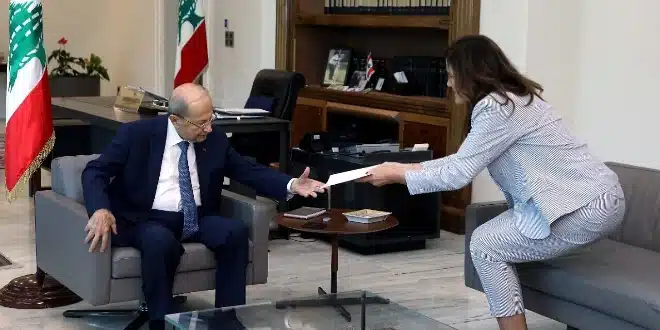Lebanese President Joseph Aoun held a key meeting on Friday with Parliament Speaker Nabih Berri to finalize Beirut’s response to a formal request from the United States to disarm Hezbollah, according to reports from Saudi broadcaster Al-Hadath. The talks mark a critical moment in Lebanon’s efforts to navigate both internal political dynamics and intense external pressure related to the country’s armed factions, particularly Hezbollah.
President Aoun, who assumed office following more than a year of cross-border hostilities between Israel and Hezbollah, has long maintained that the Lebanese state must have exclusive control over all weapons on its territory. He has previously stated that while he supports this principle, Israel must also honor ceasefire obligations outlined in a truce agreement brokered in November.
International Push for De-escalation
The renewed diplomatic push comes as the U.S. seeks a more stable long-term resolution to the ongoing Lebanese-Israeli conflict. U.S. special envoy Thomas Barrack recently presented a formal proposal to Lebanese officials, urging them to make a clear commitment to fully disarm Hezbollah. According to local newspaper al-Joumhouria, the proposal outlines a framework for a comprehensive cessation of hostilities, with a strict deadline set for the complete disarmament of the militant group before the end of November.
The plan reportedly links Hezbollah’s disarmament directly to the reconstruction of areas in Lebanon that were devastated by conflict. The sequence of steps would begin with an enforced halt to armed actions, followed by disarmament, and only then would rebuilding efforts in war-affected regions commence.
Israel Maintains Pressure
Meanwhile, Israel has continued to issue stern warnings, reiterating that it will not halt its military actions until Hezbollah is completely disarmed. Israeli officials have maintained that the presence of an armed Hezbollah poses an existential threat and undermines the sovereignty of the Lebanese state.
These developments come against the backdrop of growing regional instability and increased international attention on Lebanon’s internal affairs. The demand to disarm Hezbollah—an Iranian-backed Shiite militia and political party with substantial influence in Lebanon—has long been a sticking point in both domestic politics and foreign diplomacy.


